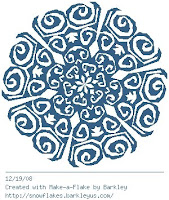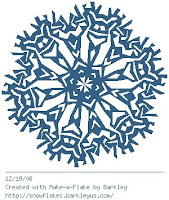Since they encourage me to post with attribution, I give you the weekly Stratfor
report from www.stratfor.com:
In a little more than a month, Washington will host the 56th U.S. presidential inauguration, during which Barack Obama will be sworn in as the 44th president of the United States. In recent years, presidential inaugurals have turned into huge gala events. They comprise not only the swearing-in ceremony for the new president and vice president at the Capitol building and the historic parade down Pennsylvania Avenue to the White House, but also scores of other events including balls, dinners, prayer services and charity events sponsored by a wide array of organizations. Essentially, there will not be a hotel or other large venue in the U.S. capital that will not be hosting some sort of inauguration-related event. These events will range in style from the somber national prayer service at the Washington National Cathedral to the raucous live-on-MTV party at the Ronald Reagan Building & International Trade Center.
Due to the popularity of President-elect Obama and the significance of his election as the first African-American president, the Secret Service (USSS) and other authorities are anticipating the largest crowds in inaugural history. These crowds will present a number of security challenges and, perhaps just as significantly, huge logistical challenges. But unlike the presidential campaign, when the security resources of the USSS were scattered nationwide, the inauguration occurs on the USSS' home turf. This provides the USSS with a decided advantage over anyone planning an attack.
The Environment and Events
Since the 9/11 attacks, security measures for high-profile events such as the inauguration have been stepped up dramatically. The Department of Homeland Security (DHS) has announced that it has designated the 56th Presidential Inaugural - including the swearing-in ceremony, the inaugural parade, the official reviewing stand on Pennsylvania Avenue and the inaugural balls - as a National Special Security Event (NSSE). This makes the Secret Service the top agency responsible for the design and implementation of the inauguration security plan. (Planning for the inauguration in fact begins about a year before the event, with the USSS hosting regular planning meetings with its counterparts.) The NSSE designation also places virtually unlimited resources in the hands of the USSS, the police and the security services that will be assisting it to neutralize any potential threat. From a security and intelligence perspective, the inauguration will take precedence over any thing else happening in the country.
The events leading up to the inauguration normally begin several days in advance. This year, in a move invoking memories of the election of another man from Illinois, Abraham Lincoln, president-elect Obama will travel to Washington by train. Obama will hold an event Jan. 17 in Philadelphia. Next, he will travel by train to Wilmington, Delaware, where he will pick up Vice President-elect Joe Biden. The two will then hold another event in Baltimore before finally proceeding to Washington's Union Station.
The analogy to Lincoln's historic election is picked up on the Joint Congressional Committee on Inaugural Ceremonies, which has a large photo of the Lincoln Memorial statue on its home page, http://inaugural.senate.gov/. More sobering is the fact that the parallels with Lincoln's trip run deeper than they might appear from a security perspective. Numerous rumors of assassination plots followed Lincoln's election, and his train trip to Washington had to be heavily guarded.
As we approach the inaugural, many rumors of threats to president-elect Obama are swirling. The president-elect received USSS protection at the earliest point in his campaign of any candidate in U.S. history, and during the final stages of the campaign, the perceived threat led the USSS to provide him with essentially the same level of security given to sitting presidents - another unprecedented measure. As with Lincoln's historic train journey, the security for Obama's train trip to Washington will be extremely tight. It undoubtedly will involve a massive operation to freeze, inspect and then post guards along the rail line, bridges and tunnels to prevent any potential attacks. This will mean a lot of cold hours for the agents and police officers assigned to guard the rail line.
The events of Inauguration Day, Jan. 20, will be fairly controlled for the first part of the day. The president-elect traditionally attends a morning worship service. Both Bush presidents and Ronald Reagan attended a service at St. John's Episcopal Church, which sits on Lafayette Square near Blair House and the White House. Bill Clinton chose to attend worship services at Washington's Metropolitan African Methodist Episcopal Church on the mornings of his two inaugurations.
After the morning worship service, the president-elect and vice president-elect will proceed to the U.S. Capitol for the swearing-in ceremony; the vice president will be sworn in first. After taking the oath of office, the newly sworn-in president will deliver his inaugural address. Following the address, the outgoing president will make his ceremonial departure from Washington, and the new president will attend the inaugural luncheon in the National Statuary Hall at the Capitol. After the luncheon, the new president and his entourage will proceed down Pennsylvania Avenue from the Capitol to the White House, where he will review the inaugural parade from the presidential reviewing stand.
After the parade, the inaugural schedule will become much more chaotic. The president, vice president and their wives typically make appearances at a number of the inaugural balls, many of which traditionally run well past midnight.
The Challenges
In addition to the security issues presented by Obama's train trip to Washington, there are a number of other factors that will challenge the USSS and supporting agencies. The first is the size of the crowd expected to attend the inauguration. Normally, hundreds of thousands of people attend the inauguration and line the parade route. But as noted previously, the number of attendees this year might surpass prior records due to the historic nature of Obama's election. This means there will be more people than ever to screen for weapons. Because of the normal January weather in Washington, people will be wearing heavy winter coats, further complicating screening procedures. The large number of attendees also means the Metro will carry a far higher volume of people than normal.
Crowd control is difficult, even when the crowd is adoring and not hostile. And the bigger the crowd, the harder it is to control. Fortunately, in the case of the inauguration, the U.S. Capitol Police, U.S. Park Police and Washington's Metropolitan Police Department have extensive experience in crowd control - not only from past inaugurals, but also from working countless other mass rallies and protests in the District of Columbia. With their experience and resources, they should be able to keep the crowds in line. It can be anticipated, however, that those attending the inaugural events might have to wait for prolonged periods at screening points before being allowed access to the bleachers, parade route, reviewing stands or inaugural ball sites.
With dozens of inaugural balls taking place at once, the number of venues involved also will pose a security problem. The USSS agents in charge of security of these events not only will have to craft detailed security plans for the facilities and any VIP attendees, they also will have to consider the human factor. They will have to conduct name checks on thousands of cooks, waiters, caterers and other venue employees in addition to the thousands of people actually invited to attend the functions. Of course, some sites will be more heavily guarded than others, depending on their location and who will be attending.
Another security challenge associated with crowds occurs when a protectee approaches the crowd to shake hands. As long as the protectee stays in his fully armored vehicle, he is relatively safe from most threats. But once he steps out of the vehicle to greet the crowd - as new presidents are wont to do for at least a part of the inaugural parade route - he immediately becomes far more vulnerable. Most protection agents really dislike working the crowd because danger can lurk there. The compact nature of a crowd makes it very difficult for agents to see bulges and bumps that can indicate that a person is armed - and this is amplified when the crowd is wearing bulky winter clothing. Moreover, the sheer number of people makes it difficult for agents to spot individuals behaving abnormally. That said, the USSS spends a great deal of time and effort training its special agents to work the crowd. They are the best in the world at it, but that does not mean it i s an easy task or one the agents enjoy.
Another significant issue is coordination. A large number of important people with their own security details will attend the inauguration. This will apply not only to incoming Cabinet secretaries and senior military officers, but also to governors, the diplomatic corps, visiting foreign dignitaries, high-profile corporate leaders, celebrities and other high-net-worth individuals. The USSS must identify, vet and keep track of each of these protective details to avoid any incidents. Such an incident occurred in 1989, when the inaugural parade was delayed after a USSS countersniper team noticed an armed man inside a room at the Willard Hotel overlooking the parade route. The armed man was later identified as an agent from another government agency working a protective detail, but the USSS did not want to begin the parade until he had been identified. That 1989 incident resulted in an increased effort to coordinate and share information regarding the locations of protective d etails. These coordination efforts also include issuing identification to security personnel, placards for motorcade vehicles and providing screening points where motorcades can enter the secure perimeter.
There's No Place Like Home
While there are challenges associated with managing huge crowds at a number of venues, the inauguration occurs squarely in the USSS' home turf. Not only do many of the supervisory special agents have experience working past inaugurations, but even many of the street-level agents have an intimate knowledge of the area and the various sites. For example, the USSS has provided protection at Union Station thousands of times, and the site agent responsible for security there probably has worked dozens or even hundreds of events there. The USSS thus has a big leg up given that past experience, and based on its intimate knowledge of the facility, its agents know all the entrances, exits, nooks and crannies.
This superior area knowledge extends beyond the detail agents. Specialized support teams such as countersniper, explosive ordnance disposal (EOD), hazardous materials and counterassault also know the sites well and have operated at them for years. They have plans for inaugural events that have been adapted and honed over many election cycles. They know precisely where to stage, sweep and secure. Undoubtedly, the countersniper teams will use the same vantage points they have long used, and the access control magnetometers also will be set up in their usual locations.
Security people like working in places they know intimately. This not only provides them with superior knowledge of the physical area, but it also gives them a baseline understanding of the human dynamics of the area. They have a good idea of who belongs there, what types of activities are normal and what is out of place. While at times this familiarity can serve to breed a sense of complacency, given the threats and perceived threats to Obama, the USSS special agents, uniformed officers and their counterparts from other agencies will undoubtedly be very alert this year.
Furthermore, even in non-inaugural times, the area along the parade route is one of the most heavily policed areas in the country. Consider that the parade starts at the U.S. Capitol, and in a few short blocks passes by heavily guarded facilities such as the National Archives, the Department of Justice, the FBI Headquarters, the Department of Commerce and the U.S. Treasury before reaching the White House. This normally high level of security would make it difficult for an attacker to place a device prior to the inauguration, and it also would complicate efforts to conduct preoperational surveillance.
The airspace over Washington is already carefully restricted. It will therefore not be terribly difficult for the USSS to work with the Federal Aviation Administration and the military to exercise even more control of the airspace over the event, and for them to have aircraft on station to enforce such restrictions.
Soft Targets
Our forecast, then, is that as with the last inauguration, the home-turf advantage will allow the USSS to erect a very significant wall of security around the main inaugural events. Therefore, potential attackers will have a much greater chance for success by concentrating on other, less secure targets - what we refer to as soft targets.
These soft targets could include crowds at Metro stations or on trains on Inauguration Day. While we anticipate a greatly increased police and EOD canine presence at Metro stations that day, such resources are nonetheless limited, and security personnel can only watch, question or screen a finite number of people at any one time. Thus, a huge influx of passengers will likely overwhelm the capacity of even an increased police presence in the Metro system.
Other potential soft targets are crowds outside of secure areas or the lines of people waiting to pass through metal detectors. There have been many examples of such queues and crowds being attacked in places like Iraq and Afghanistan.
Perhaps one of the greatest threats exists at some of the lower-profile inauguration-related events in Washington, and even in the Maryland or Virginia suburbs. Such events will not have the same level of security afforded to the big inaugural parties. This could cause them to be viewed as attractive soft targets, especially as they are being held in the Greater Washington area and are related to the inauguration.










